Life Advice
/Health

No holiday plans? This social app will match you with a group of strangers for dinner
LOS ANGELES -- When David Brown moved from Chicago to Los Angeles this summer, one of the first things he did was download an app that aims to "fight big-city loneliness."
The 35-year-old sales director had seen an Instagram ad for Timeleft, which matches users with strangers for dinner via a personality algorithm. Since he only knew a handful ...Read more

Ask Anna: Help! My boyfriend's gift game is weak -- here's how to talk about it
Dear Anna,
When it comes to gifts, my boyfriend of two years kinda phones it in. For my birthday last month, he gave me a gift card to a coffee shop, which was sweet, but I work from home and don’t even drink that much coffee! Last Christmas, I got a generic piece of jewelry that wasn’t my style at all. I’ve tried to tell myself it’s ...Read more

Erika Ettin: How much should I tell my friends about my love life?
It’s 11 p.m. on Tuesday, and you’re wrapping up a first date. And it was a pretty good one! It ends with a hug goodbye and tentative plans to get together again for dinner early next week (you know, if you ever hear from him again). As you climb into your Lyft and give a final wave to your date, you’re excited that after a string of "mid" ...Read more
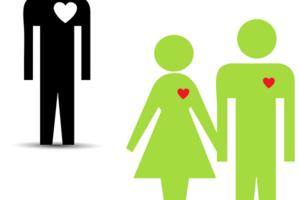
How do you know if someone is ready to date?
Question: “How do you ask if a guy is ready for a relationship if he is ripe off of a five-year relationship?”
This is a question I received recently, and I get some form of the “How do I know if someone else is ready?” question quite frequently.
My response:
“People are notoriously bad at self-assessing their readiness. The only ...Read more

Ask Anna: How to handle being single during cuffing season without losing your mind
Dear Anna,
Usually Mariah Carey season is my favorite, but this year I’m struggling. Everywhere I look, people are cozying up, planning cute holiday dates and posting about their jolly AF lives. Meanwhile, I’m single, spending my evenings scrolling through dating apps and wondering if I should just settle for someone mediocre so I’m not ...Read more

Ask Anna: From situationships to dating apps -- a guide to starting fresh
Dear Anna,
My partner and I broke up in late April but we had a situationship over the summer. I’m a sophomore in college and I’m excited to get back out there. There’s one problem, I have no clue what I’m doing. I’ve only recently started to learn about sexual guilt and shame because I never focused too much on it while in my ...Read more
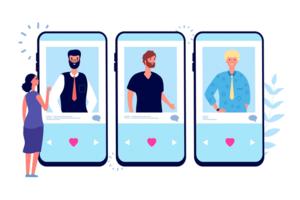
How to attract quality in your dating profile
“How can I write in my online dating profile to attract the type of person I’m looking for?”
This is a question I get, in some form or another, from clients almost daily. In their mind, they have a target partner. Let’s say this “target” is a man in his 60s, well-educated, with grown children, and lives in Philadelphia. Or maybe ...Read more

Ask Anna: My fiancee wants a 'free pass' before the wedding
Dear Anna,
My fiancee and I have been together for three years, and I thought everything was great. Last night, however, during dinner, she brought up something that completely blindsided me: the idea of us each having a "pass" to sleep with someone else before the wedding. She said it would be healthy for our relationship and help us start our...Read more

'Should sex with one person mean you stop going on dates with other people?'
“Should sex with one person mean you stop going on dates with other people?”
This is a question someone asked me recently. In my line of work as a dating coach, things come up in all areas of the early dating process—how to use the apps efficiently, what to do/say on a first date, when/what to text, how to build connection and chemistry, ...Read more

This couple got married Saturday -- immediately after running the Philadelphia Half Marathon
PHILADELPHIA — The brides wore running gear — sneakers, comfy shirts, and, for one of them, a black ball cap that said “I Do.”
Kara McElvaine and Shelbie Turner got married Saturday while running the Philadelphia Half Marathon, exchanging vows every mile, smiling through the finish line.
“We decided to celebrate being each other’s ...Read more

Talk politics with family on holidays? Maybe don't, psychologist says
ATLANTA -- After a contentious election cycle, many people look forward to the holidays as a time to reset. But some of us dread talking about politics with certain family members. Producer Natalie Mendenhall spoke to Drew Westen, a professor emeritus at Emory University and a licensed psychologist.
Here’s that interview with tips for you on ...Read more

Ask Anna: She's not over her ex, and you're not OK with casual -- what now?
Dear Anna,
I’ve been seeing this girl for about two months, and while things have been fun, I’m struggling with how close she still is to her ex. They were together for seven years and broke up six months ago, but it feels like he’s still very present in her life. He even comes over frequently. She has photos of them all over, and her ...Read more

7 dating mistakes that you can fix right now
You can’t “create” chemistry, either online or in person, but you can do a few tangible things to increase your odds a bit. I want to share 7 dating mistakes that you can fix right now:
1. Using unflattering profile pictures.
You say, “Does it really matter?” The answer is yes. Yes, it does. You get one chance to make a first ...Read more
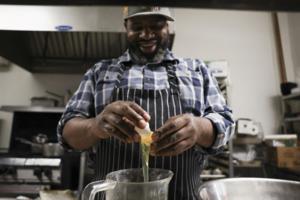
Long-lost mother and son find healing and sweet reunion at bakery
CHICAGO -- Lenore Lindsey did not consider herself a baker when she opened Give Me Some Sugah at age 50 in 2008. Neither did Vamarr Hunter when he took over the South Shore bakery this year at the same age.
The late-in-life knack for baking isn’t the only parallel in their stories, first reported by the Chicago Sun-Times. Hunter never dreamed...Read more

What is the South Korean 4B movement and why are American women claiming to embrace it?
In a TikTok post that’s been liked by more than a million users, TikTok user @rabbitsandtea, who goes by “A,” sits on a couch dressed in sweatpants and a sweatshirt. Her long, brown hair untied, she is petting her cat while hawk-like bird calls play in the background. Text on the screen reads: “Doing my part as an American woman by ...Read more
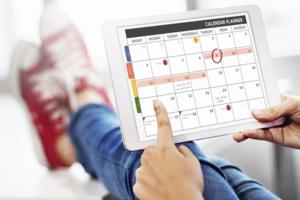
Can a planner and a non-planner really make it work?
You’re a planner. You have your calendar color-coded, dinner reservations booked a month in advance, and you know exactly what you’ll be doing on your next vacation, down to which café you’ll stop at for your all-important afternoon iced coffee.
You meet someone who’s all about “going with the flow,” a non-planner who would sooner ...Read more

Ask Anna: Is it wrong to break up because of their toxic family?
Dear Anna,
I've been with my boyfriend for two years now. We’re both in our mid-20s. His family is honestly the most toxic group of people I’ve ever encountered, and it's taking a huge toll on me. They’ve caused nothing but chaos and drama, moving in and out of our place, causing fights, skipping bills and even trashing our house. My ...Read more

Ask Anna: How can I move past my boyfriend's cringey DMs?
Dear Anna,
I've been dating my boyfriend (36M) for five months, and recently, I found out that he had quite a reputation for sending unsolicited, borderline harassy messages to women online. A coworker of mine showed me some of his old DMs on Instagram — telling her how hot she was, and asking her out repeatedly, even though she never replied...Read more
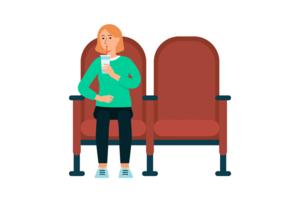
'Still single' versus 'single and available'
“In your opinion, why am I still single? I want love to find me!!”
This is a text message I received recently from a frustrated client of mine.
I actually get this question more often than one might think. I replied, “This sounds like a question that can’t be answered over text. But I’ll start here: You’ve had relationships before,...Read more
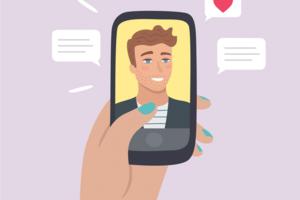
Want to help a friend find love? Give a PowerPoint presentation
LOS ANGELES -- As a woman prepares to pitch her friend to an audience of roughly 200 eager singles, a few of their pals skip around the room, hold up cardboard signs that say "Team Jason" and hype up the crowd. A live band plays early 2000s pop music while the eligible bachelor makes his way to the stage and sits on a velvet blue couch under a ...Read more
Popular Stories
- Ask Anna: Help! My boyfriend's gift game is weak -- here's how to talk about it
- How do you know if someone is ready to date?
- No holiday plans? This social app will match you with a group of strangers for dinner
- Erika Ettin: How much should I tell my friends about my love life?
- Ask Anna: How to handle being single during cuffing season without losing your mind













